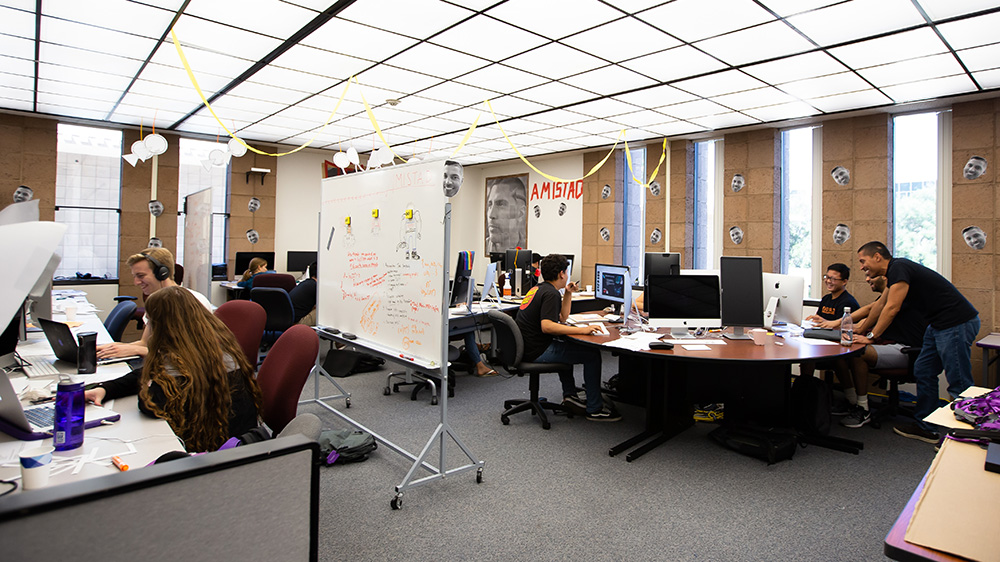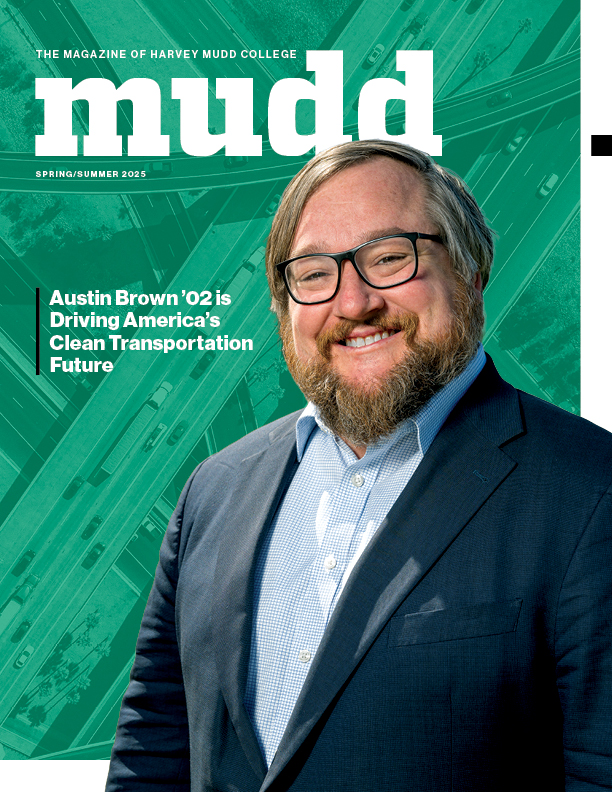Harvey Mudd Team No. 4 in Citadel Terminal Global Championship
July 21, 2022
A team of Harvey Mudd College students placed fourth in Citadel’s TERMINAL global championship, winning a $5,000 prize and beating teams of experienced players and PhDs from top universities around the world.
Students from Harvey Mudd placed first and third in the TERMINAL West Coast regional event in November, and they were invited to the summer global championship. Members of the first-place team— Milo Knell ’25 (CS and math) and Alan Wu ’25 (CS and math)—joined with a member of the third-place team, Sahil Rane ‘25 (CS and math), to form the new team. All three are living on campus this summer while doing research in the AMISTAD Lab (Artificial Machine Intelligence = Search Targets Awaiting Discovery) of computer science professor George Montañez.
Harvey Mudd College came out of a multiway tie for first place as the fourth-place team based on the tiebreaking metric. They finished behind a PhD student from the University of Warsaw and Errichto, a well-known competitive programmer and Youtuber.
“Our algorithm beat his team’s but unfortunately we lost by seed,” says Wu.
Their experience at the West Coast competition and their work together on campus helped give the Harvey Mudd team the edge in a contest where Citadel gathers the best players from around the world to compete, allowing the asset management firm to identify talented programmers.
Competitors write code and strategize to beat other teams in TERMINAL, a tower defense game where players build a base and send units to attack the opponent. Players pick moves that are executed simultaneously. Health is lost when an enemy unit reaches the opponent’s edge, and the game ends when a player reaches 0 health.
The HMC team gave this description of its strategy: “We rewrote the pathfinding code of the official game library, to create a simulator that’s fast enough to evaluate ~50 board states per round. We made some simplifying assumptions about the game to allow us to simulate many more board states at a minimal cost of accuracy. Using this simulator, we were able to test out many different attack strategies to find out which was optimal. We came up with strategies to adapt our base to maximally exploit weaknesses in the enemy setup. In our strategy, we do not build our base until the opponent does so we can ensure that we mirror their base. Most players have a strong side and a weak side, and by matching our strengths to their weak we are confident we can exploit their weak side more than they can ours.
“Another thing we are proud of is our smart banking, where we compute the tradeoff between sending units now and next turn versus waiting for an extra turn to get more money to send a stronger attacking force. Since saving up for several rounds is so impactful, we wrote a heuristic along with simulations to predict when the enemy would send their attack so we could counter it by sending defensive units.”
Wu says, “Part of the reason we did so well is that we sent many units to stop enemy attacks and generally had fewer times where we sent defensive units when the enemy did not attack (a waste of money).”
